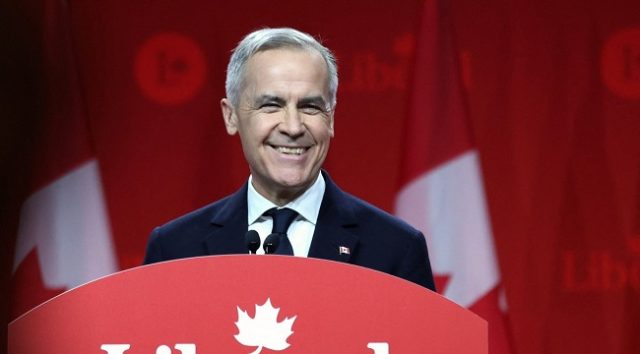Canada to recognise Palestinian state at UN General Assembly
In a landmark policy shift, Canadian Prime Minister Mark Carney announced on Wednesday that Canada will formally recognise the State of Palestine during the 80th Session of the United Nations General Assembly in September 2025.
Carney described the move as a necessary step to preserve hopes for a two-state solution to the Israeli-Palestinian conflict — a long-standing goal of Canadian foreign policy that he warned is “being eroded before our eyes.”
“Canada intends to recognise the State of Palestine at the 80th Session of the United Nations General Assembly in September 2025,” Carney stated.
With this announcement, Canada becomes the third G7 nation, after France and the United Kingdom, to declare its intent to recognise a Palestinian state at the UN session.
International Reactions: US and Israel Respond Strongly
The policy announcement drew immediate backlash. Israel condemned the move, calling it part of a “distorted campaign of international pressure,” while former US President Donald Trump responded on his social media platform, Truth Social, suggesting it could jeopardise ongoing trade talks with Canada.
“Wow! Canada has just announced that it is backing statehood for Palestine,” Trump wrote.
“That will make it very hard for us to make a Trade Deal with them.”
Asked whether Canada could reverse its decision before the UN meeting, Carney responded,
“There’s a scenario — possibly one that I can’t imagine.”
Conditions for Recognition: Governance and Reforms
Carney clarified that Canada’s recognition is conditional on the Palestinian Authority’s commitment to key reforms. This includes holding general elections in 2026, excluding Hamas from participation, and committing to the demilitarisation of the Palestinian state.
“Our intention is predicated on the Palestinian Authority’s commitment to much-needed reforms,” Carney said, referencing the administration of President Mahmoud Abbas, which governs parts of the Israeli-occupied West Bank.
In response, Abbas welcomed the announcement as a “historic” decision, while France stated that the countries would collaborate to “revive the prospect of peace in the region.”
A Shift from Negotiated Peace to Unilateral Action
Carney acknowledged the traditional global preference for a negotiated settlement between Israel and the Palestinians, but argued that recent developments have made such an approach “no longer tenable.”
He cited multiple setbacks:
-
The October 7, 2023, Hamas terror attacks, and Hamas’s refusal to recognise Israel’s right to exist
-
The expansion of Israeli settlements across the occupied West Bank and East Jerusalem
-
A recent vote in the Israeli parliament calling for the annexation of the West Bank
-
Israel’s “ongoing failure” to prevent a humanitarian disaster in Gaza
“The suffering of civilians in Gaza leaves no room for delay in coordinated international action to support peace,” Carney said.
Strategic Framing: Recognition as a Path to Peace
Carney framed Canada’s decision as pro-Israel, arguing that long-term peace and security for Israel depend on the establishment of a viable Palestinian state.
“Any path to lasting peace for Israel also requires a viable and stable Palestinian state — one that recognises Israel’s inalienable right to security and peace,” he said.
While the UK’s Prime Minister Keir Starmer has also announced plans to recognise Palestinian statehood, his support is conditional on Israel agreeing to a ceasefire in Gaza and other substantive steps. In contrast, Canada’s commitment appears firmer, even though it remains tied to Palestinian governance reforms.
The Israeli embassy in Ottawa issued a sharp rebuke, stating:
“Recognising a Palestinian state in the absence of accountable government, functioning institutions, or benevolent leadership, rewards and legitimises the monstrous barbarity of Hamas on October 7, 2023.”
Nevertheless, Canada’s decision adds significant weight to growing international momentum in favour of recognising Palestinian statehood — potentially reshaping the landscape of Middle East diplomacy ahead of the UN General Assembly in September.
— AFP














Post Comment